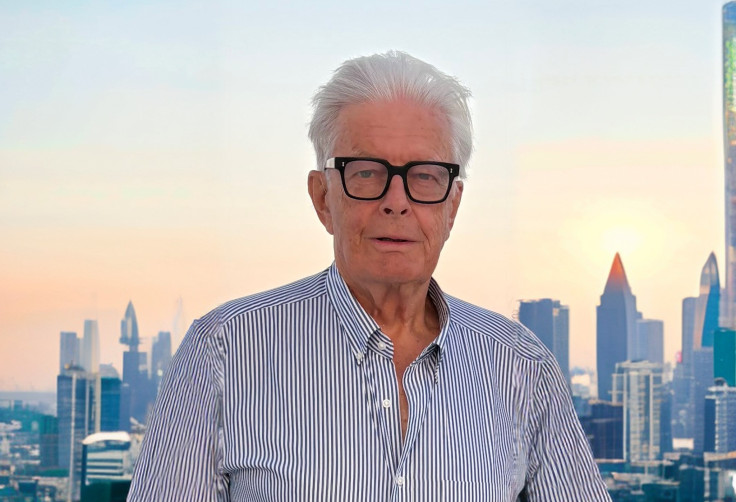Responsible Power on Rethinking Hotel Energy: Why Efficiency Must Come Before Green Labels

Sustainability is no longer a trend but a necessity, and the hospitality sector finds itself at a crossroads. Hotels, long praised for luxury, convenience, and around-the-clock service, now face increasing pressure to align with environmental standards and curb their energy consumption. However, despite rising awareness, many operators are still focused on energy sourcing, rather than energy use. Responsible Power Systems Limited, an energy management innovator, is on a mission to change how it thinks about, manages, and reduces its energy consumption.
Responsible Power acknowledges that governing bodies, investors, and consumers are pushing for accountability across every industry, including hospitality. Hotels are energy-intensive enterprises, typically requiring uninterrupted heating, cooling, lighting, laundry services, kitchen operations, and more. Unsurprisingly, energy ranks as the second-largest operating cost in most hotels. Yet, most of this energy is consumed behind the scenes with minimal oversight, often inefficiently, and sometimes needlessly.
"For years, the focus in hotel energy strategy has been on securing the best supplier contracts, but cheaper rates don't necessarily mean smarter energy use," says Archie Stirling, founder of Responsible Power. "With prices beginning to stabilize, there's a false sense of relief setting in. But the real opportunity isn't just paying less per unit, it's using less energy altogether. That's where the long-term value lies."
Responsible Power's perspective challenges the prevailing narrative in hotel sustainability. Green energy sourced from wind, solar, or even nuclear is important. However, it often distracts from a more urgent truth that too much energy is simply wasted. For instance, the March 2025 Energy Trends report reveals that only 45% of the United Kingdom's energy input is ultimately used, with 55% lost through conversion, distribution, and industry use.
"This kind of inefficiency is all too common in hospitality," states Stirling. "You've got disconnected systems, outdated infrastructure, and habits that just stick like kitchen appliances running all day whether they're needed or not, or empty rooms being fully climate-controlled simply because that's how it's always been done."
Responsible Power also believes that not all so-called 'green' solutions remain sustainable when viewed across their full life cycle. The environmental costs of manufacturing, transporting, and installing technologies like wind turbines or solar panels are often overlooked. In some cases, especially with complex installations or opaque supply chains, the long-term benefits may not be as straightforward as they appear. "A green label doesn't guarantee a green outcome. Responsible energy practice begins not with choosing where energy comes from, but deciding whether it should be used at all," Stirling remarks.
Responsible Power's approach, therefore, begins with visibility. They gather precise, real-time data on how, where, and when energy is used within a hotel. Through its proprietary Active Management Portal (AMP), Responsible Power tracks department-level consumption, identifies anomalies, and generates insights that allow staff and managers to make informed decisions.
"We're not talking about just saving energy by turning off lights or changing thermostat settings. Our goal is to make energy awareness a part of every area of the business, from housekeeping and food service to operations and management," Stirling says.
This strategy's impact relies on precision. Responsible Power conducts on-site audits to establish a detailed energy profile for each property. Engineers work alongside hotel teams to determine realistic service standards, and then align energy use to match those benchmarks. In practice, this means kitchens may only fully power appliances during service periods, HVAC systems respond dynamically to room occupancy, and departments monitor their daily consumption using a simple traffic-light interface. The result is a live accountability structure, not an abstract sustainability report filed away for compliance.
The outcomes speak for themselves. Hotels that partner with Responsible Power report significant cost reductions. Equally as important as the savings is the behavioral shift. "We've seen managers start treating energy like any other variable expense, tracking and optimizing it every day. Staff across departments begin to see how their actions affect not just the utility bill, but the hotel's overall environmental impact," Stirling shares.
Responsible Power is a reliable partner in reshaping the foundation of hotel operations. At a time when consumers are demanding greener choices, investors are scrutinizing ESG metrics, and regulators are tightening carbon reporting requirements, the hospitality industry must evolve. The company believes that evolution begins with knowing where energy goes, when it's used, and why it matters.
"Energy efficiency is about building smarter businesses that perform better economically, operationally, and environmentally, not just ticking compliance boxes," Stirling reminds. "Reducing your waste is your competitive advantage."
© Copyright IBTimes 2025. All rights reserved.





















